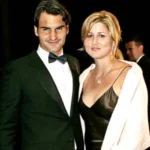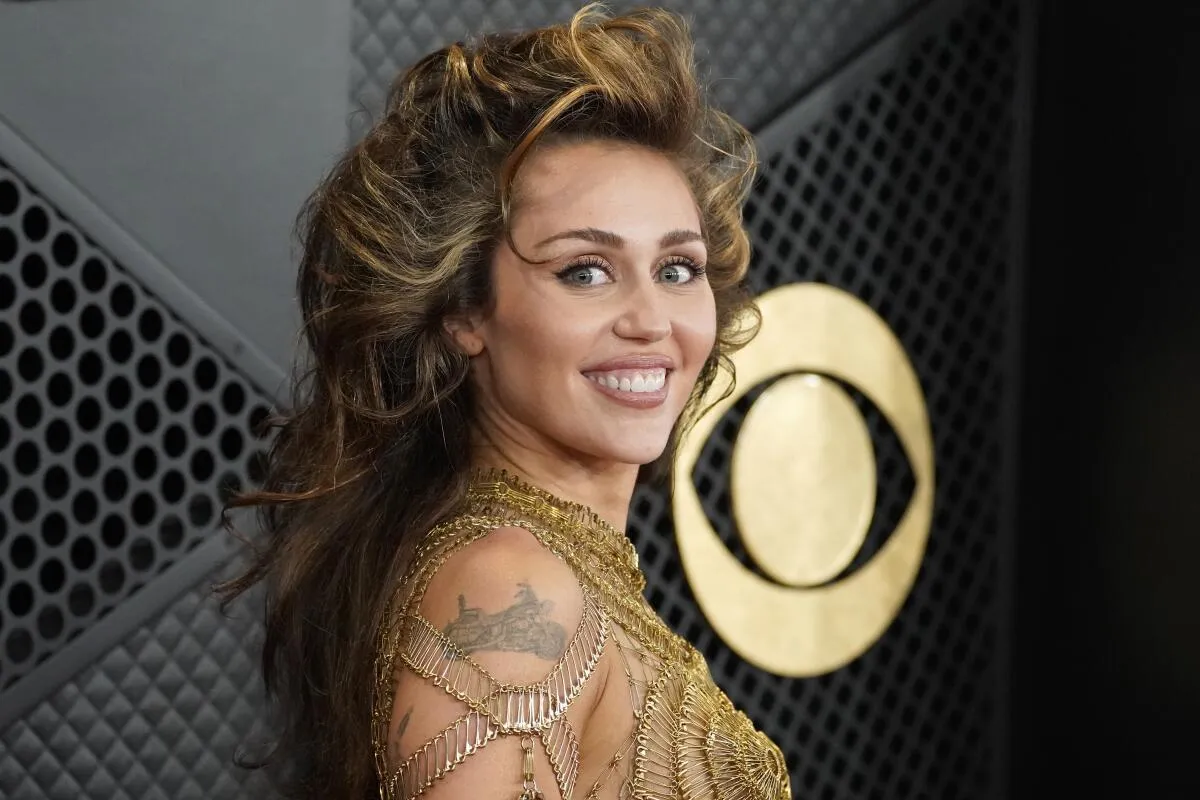

“I Was the First to Be Canceled”: Miley Cyrus Opens Up About Past Controversies
The phrase “I was the first to be canceled” is one of the most striking admissions that pop superstar Miley Cyrus has ever made in public. For a generation of fans, Cyrus is more than just a singer and performer—she’s a cultural lightning rod whose career has reflected the evolution of fame, scandal, and resilience in the age of social media. From her Disney beginnings as Hannah Montana to her boundary-pushing reinventions as a rebellious pop provocateur, Cyrus has lived through controversies that would have ended many other artists’ careers. Yet, rather than fade, she has continually redefined herself, proving her ability to rise stronger every time. When Cyrus speaks about being “canceled,” she isn’t just recalling a personal chapter—she’s shining a light on the very culture of celebrity takedowns that has become a global phenomenon.
The Hannah Montana Legacy and the Burden of Perfection
To understand why Miley Cyrus became such a central figure in conversations about being “canceled,” one has to revisit her roots as Hannah Montana, a Disney Channel juggernaut that made her one of the most famous teenagers on the planet. At the time, she symbolized innocence, talent, and the perfect role model. Yet, that image was a double-edged sword. While Disney created a global superstar, it also placed Cyrus in an impossible position: every action, every photo, every lyric was scrutinized through the lens of being a “child star.” The weight of expectation meant that any deviation from that image—whether a racy photo shoot, a daring performance, or a bold statement—was interpreted as a fall from grace. For many fans and parents, Cyrus went from being a role model to a symbol of rebellion, and the backlash was swift.

The First Waves of Controversy
Miley Cyrus’s admission that she felt like the first to be canceled refers to her early controversies in the late 2000s and early 2010s. Long before “cancel culture” became the mainstream term it is today, Cyrus was already being dragged across tabloids and social media for her choices. From provocative photos to her infamous Vanity Fair shoot at age 15, critics claimed she was “corrupting youth.” While today’s fans might shrug at such imagery, at the time, the outrage was massive. Brands, magazines, and television commentators treated the teenager’s attempt to grow up as if it were a national scandal. It was this overreaction that Cyrus now identifies as one of the earliest examples of what would later be called cancel culture.
The 2013 MTV VMA Performance
Perhaps no moment defines Miley Cyrus’s “canceled” era more than her 2013 MTV Video Music Awards performance with Robin Thicke. Dressed in a nude latex bikini, wielding a foam finger, and engaging in provocative dance moves, Cyrus shocked the world. The internet exploded with criticism. Parents groups condemned her, the media labeled her “out of control,” and think pieces debated whether her career was over. For many artists, that might have been the end. Yet, for Cyrus, it was only the beginning of a new chapter. She leaned into the chaos, embracing her role as a rule-breaker and a voice of self-expression. What was supposed to “end” her career only solidified her position as a pop culture disruptor.

How Cancel Culture Evolved with Miley Cyrus
The reason Miley’s story resonates today is because she was one of the first high-profile stars to endure what we now know as cancel culture. The idea that fans and media collectively decide to “cancel” a celebrity over a controversial act or statement has become commonplace in the 2020s. But in 2010 and 2013, the phenomenon wasn’t yet labeled—it was just scandal, outrage, and backlash. Cyrus was among the first modern artists to face a career-threatening wave of criticism amplified by social media platforms like Twitter and YouTube. In her words, being “the first to be canceled” reflects the fact that she endured these storms before cancel culture was even formally recognized.
The Double Standard in Fame
Another key point in understanding Miley’s controversies is the double standard applied to her compared to male stars. When young male celebrities acted out—whether through partying, reckless behavior, or controversial lyrics—they were often dismissed as “boys being boys.” For Miley, every choice was magnified into a moral crisis. This gender bias is central to her reflection on being canceled. By openly discussing the experience, Cyrus not only sheds light on her own resilience but also highlights the unfair pressures female artists face in the industry.
Reinvention as Survival
A defining trait of Miley Cyrus’s career is her ability to reinvent herself. Each time she faced backlash, she responded not by retreating but by evolving her artistry. After the Hannah Montana era, she leaned into bold pop anthems like “We Can’t Stop” and “Wrecking Ball.” Following the VMA scandal, she pivoted into more experimental and psychedelic projects, aligning herself with counterculture icons. Later, with albums like “Younger Now” and “Plastic Hearts,” Cyrus embraced a rock-inspired sound that reintroduced her to audiences as a mature artist with longevity. Reinvention was not just a creative choice—it was her survival mechanism against cancellation.

The Personal Impact
While much of the focus is on her public image, Miley has also opened up about the personal toll of her controversies. Being scrutinized from such a young age left scars, but it also forged her resilience. In interviews, she has reflected on moments of feeling misunderstood, unfairly judged, and stripped of privacy. Yet, rather than being crushed by the experience, she turned the pain into power. This balance of vulnerability and defiance is what makes her current reflections so powerful. When she says, “I was the first to be canceled,” it carries both the weight of trauma and the pride of survival.
Today’s Perspective on Cancel Culture
From today’s perspective, Miley Cyrus’s early controversies look different. With the benefit of hindsight, fans and media have reassessed her actions with more nuance. Many now view her VMA performance as a pivotal moment in challenging outdated norms about sexuality, female empowerment, and self-expression. Others see her journey as a warning about the dangers of tearing down young stars before they’ve had a chance to grow. In the era of TikTok and Twitter call-outs, Miley’s story feels prophetic: she experienced the consequences of cancel culture years before it became a widely debated issue.
Miley’s Current Place in Pop Culture
Despite the ups and downs, Miley Cyrus remains one of the most respected and influential artists of her generation. She has earned critical acclaim for her vocal talent, especially her ability to transition between genres from pop to country to rock. She has also gained admiration for her advocacy, including her support for animal rights, LGBTQ+ communities, and mental health awareness. By owning her past and reframing it as part of her evolution, Miley has turned controversy into authenticity—a quality fans crave in today’s world of polished celebrity branding.

Conclusion: The Power of Owning the Narrative
When Miley Cyrus says, “I was the first to be canceled,” she is not asking for pity. She is reclaiming her story. What was once framed as scandal is now part of a legacy of resilience, reinvention, and authenticity. She represents the idea that controversy does not have to end a career; instead, it can be the fuel for growth. In an era where cancel culture continues to dominate public conversation, Cyrus stands as both a survivor and a pioneer. Her openness challenges us to rethink how we treat young stars, how we judge mistakes, and how we balance accountability with compassion.
In the end, the Miley Cyrus controversies are not just about a pop star—they are about a culture learning how to handle fame in the digital age. And if Cyrus’s career proves anything, it’s that cancellation is not the end. For some, like Miley, it’s just the beginning of a new chapter.


















